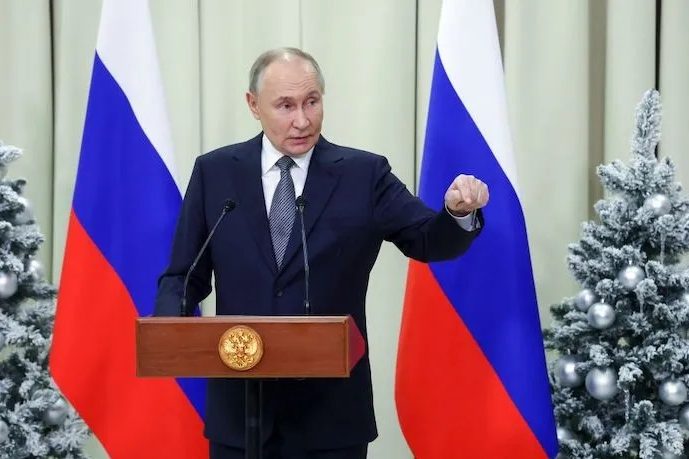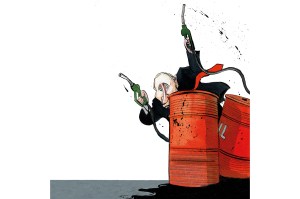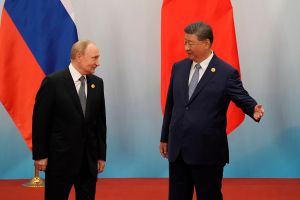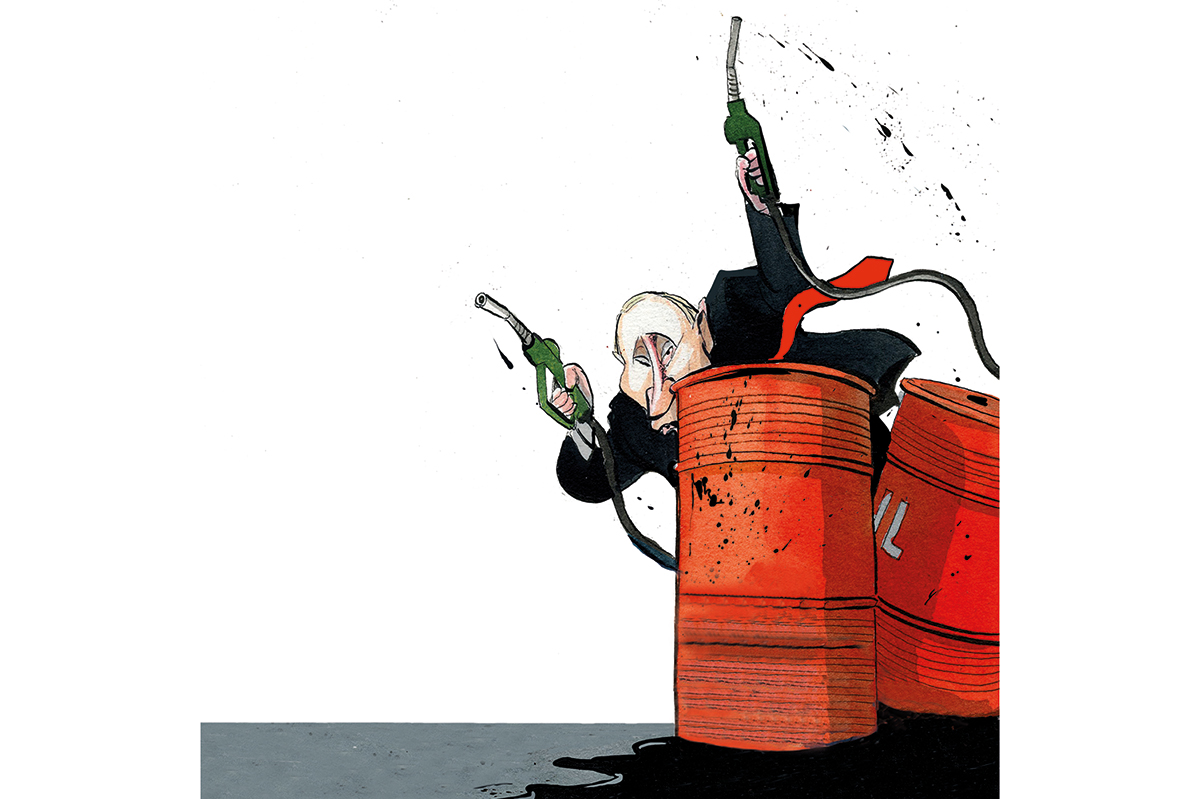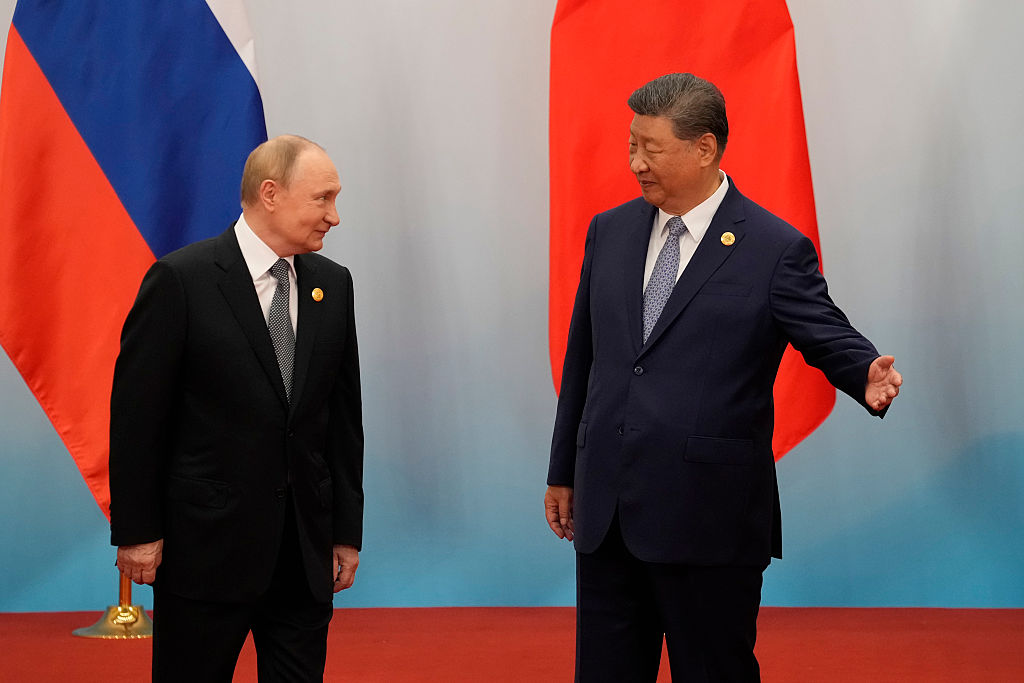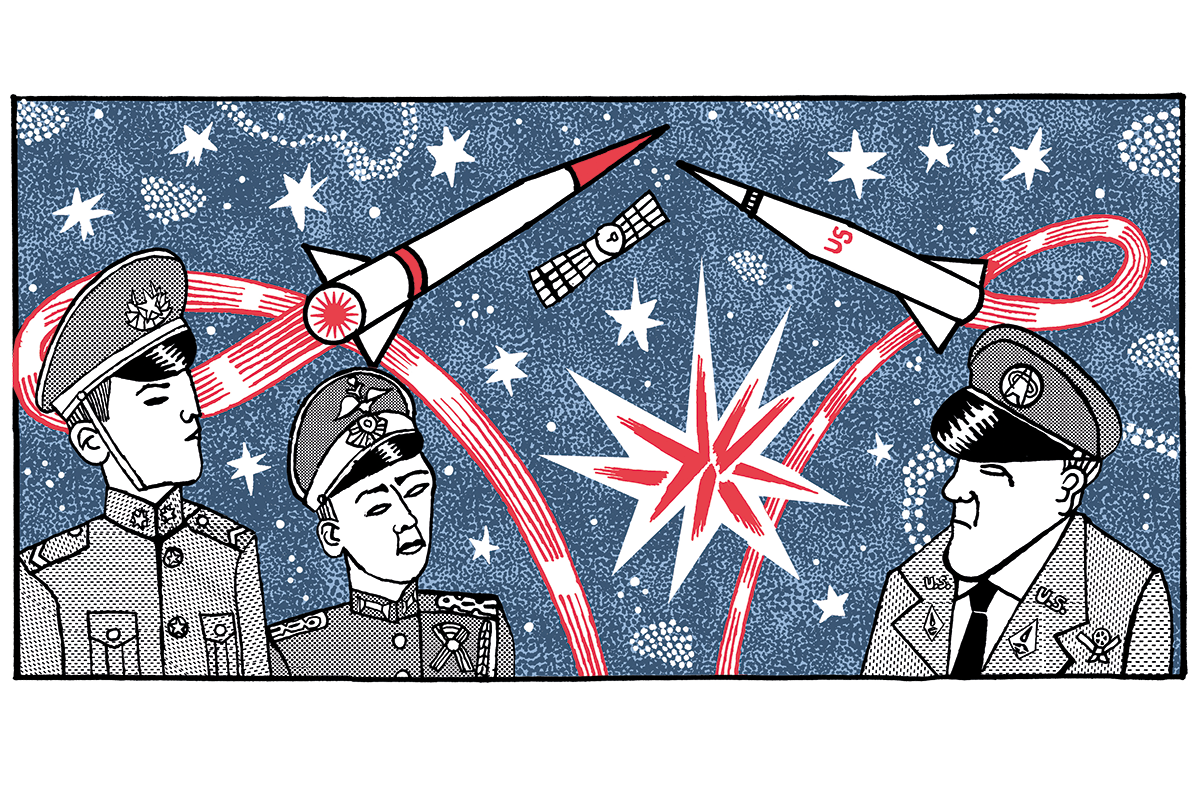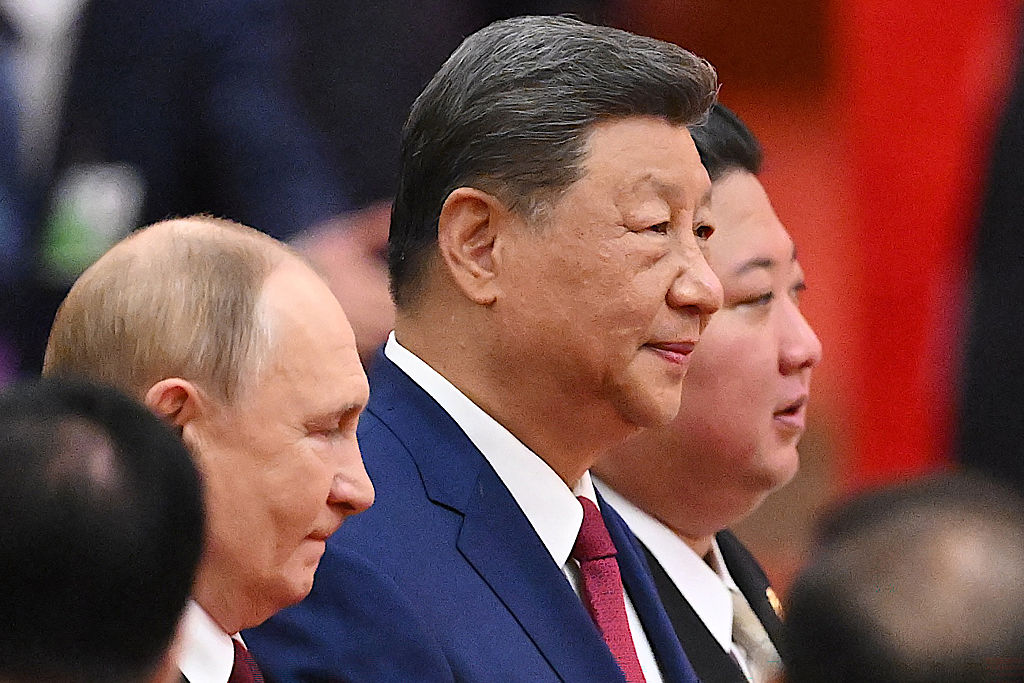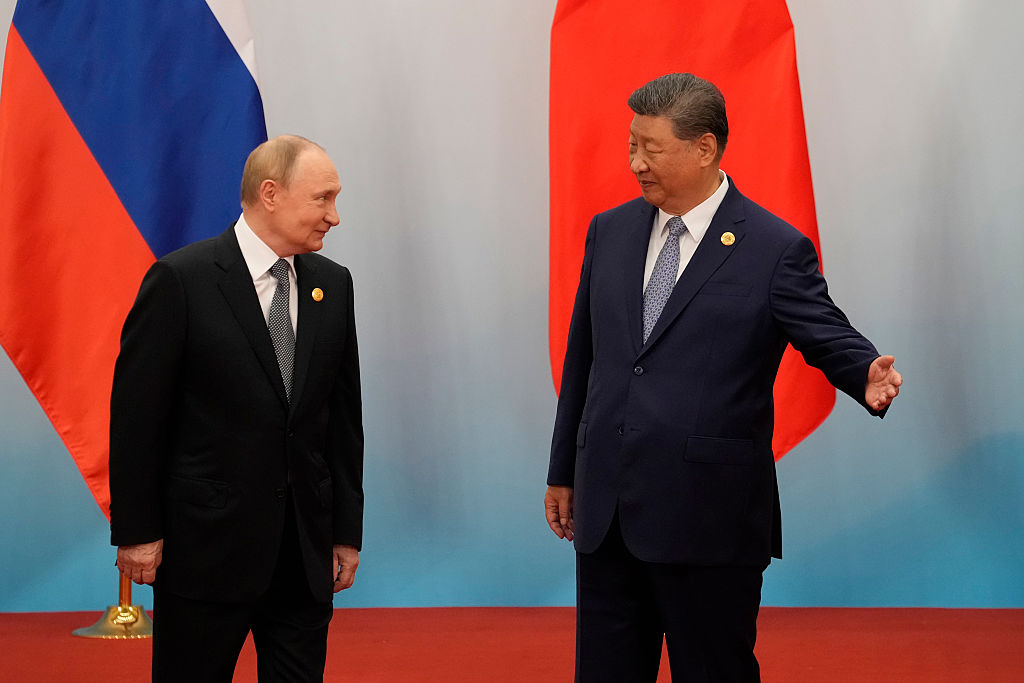Neither the Russian Orthodox Church nor the Russian state calendar recognize December 25 as a special day: their Christmas is January 7 by their old calendar and, in any case, it is New Year’s Eve that is the real blow out. As households prepare the usual staples of Salad Olivier, Herring under a Fur Coat (smothered in mayonnaise), tangerines and champagne, it will be impossible for them to ignore a basic fact: everything is getting more expensive. Indeed, while the headline inflation rate is just under 10 percent, the price of many basic foods have increased dramatically more. One Russian newspaper estimated that the price of a typical New Year’s Eve dinner has risen by almost 30 percent, year on year.
Vladimir Putin tried to downplay this in his recent marathon press conference, blaming it on Russians’ own consumption
Vladimir Putin tried to downplay this in his recent marathon press conference, blaming it on Russians’ own consumption, whether for meat or dairy products, even while acknowledging that, for example, the price of butter had risen by 33-34 percent. For all his insouciance, this is something that exercises the Kremlin, both because of its impact on public sentiment and also because it is a symptom of wider pressures on the economy.
Despite Putin’s claims that the past year has seen the real incomes of Russians rise, even official data suggests anything up to a 20 percent decrease. Russians have seen their salaries increase in the main, often at a level equivalent to the general inflation rate, but with key foodstuffs as well as other basic commodities becoming much more expensive, this eats into the family budget in a way that people notice. Indeed, many of the worst hit are the state employees on whom Putin has in the past relied for support. Rising prices was among the most-raised topics in questions submitted for Putin’s press conference, and it is one to which the Kremlin has fewest answers. Governors are being told to prioritize the dairy sector, for example, but they cannot conjure production from nowhere.
It is certainly an article of faith within the security agencies that, if they are going to face mass protests in the future, it pwould most likely be sparked by economic hardship rather than a political cause, or that bread and butter issues would generate unrest that political actors would then seek to capture. The irony is that by decapitating and dispersing the domestic opposition, both liberal and nationalist, the Kremlin lacks known interlocutors with whom to deal in such a scenario. As a retired officer in the Federal Security Service admitted to me, “God only knows what kind of figures will emerge then.”
It is important to stress that this is only a potential future, well over the current horizon. For now, the Kremlin has the money to take the edge off such pressures and the muscle to crack down on localized expressions of anger. More important is how this is a symptom of an economy which, while able to support the ongoing war in Ukraine, is being squeezed by its need to reorient spending to the defense sector. There is no spare investment capital, labor or industrial capacity. Western sanctions, while by no means the “economic nuke” some of their most bullish advocates claimed in 2022, are grinding away, essentially imposing costs of their own on the economy.
A headline GDP increase of perhaps 4 percent in 2024 is largely the result of war spending and has been at the cost of burning economic “muscle mass” in a way that will come back to haunt the country. Even apparent success stories have their stings in the tail. The booming construction industry, for example, is not only partly fueled by the death benefits paid to families for fallen soldiers, but also occupies workers whom the army would otherwise hope to recruit.
One of the key problems is that Putin does not seem to understand economics that well, or at the very least seems to have an almost Bolshevik belief that ultimately the state should be able to shape market forces to its will. He even seems to be getting exasperated with his long-serving and highly-able central bank chair, Elvira Nabiullina, because she has not magically been able to bring inflation under control, despite cranking the interest rate up to a record level.
Instead, the specter of stagflation looms in 2025, the dangerous combination of low productivity growth and high inflation, while 40 percent of all government expenditure (at least 8 percent of GDP) goes on defense and security. This all needs to be kept in context. As two of the best analysts of the Russian economy, written by Alexandra Prokopenko and Alexander Kolyandr, wrote in The Bell, “There is money available to keep fighting the war for another twelve months: it has already been earmarked. And, despite worsening expectations, business generally remains optimistic. The projected 0.5 percent budget deficit is manageable, albeit expensive at current rates.” Yet even government projections cannot claim that growth will exceed 1.5 percent and others expect it to be much lower.
More to the point, Putin is getting closer to the point where he will have to make serious choices between guns and butter, if the war drags on through 2025, or if he faces some unexpected new call on his resources. Ordinary Russians may not be following the macro-economics, but the spate of articles in the media on how to host New Year’s Eve on a budget, as well as a run on cheaper varieties of champagne, suggests that they are feeling it.



